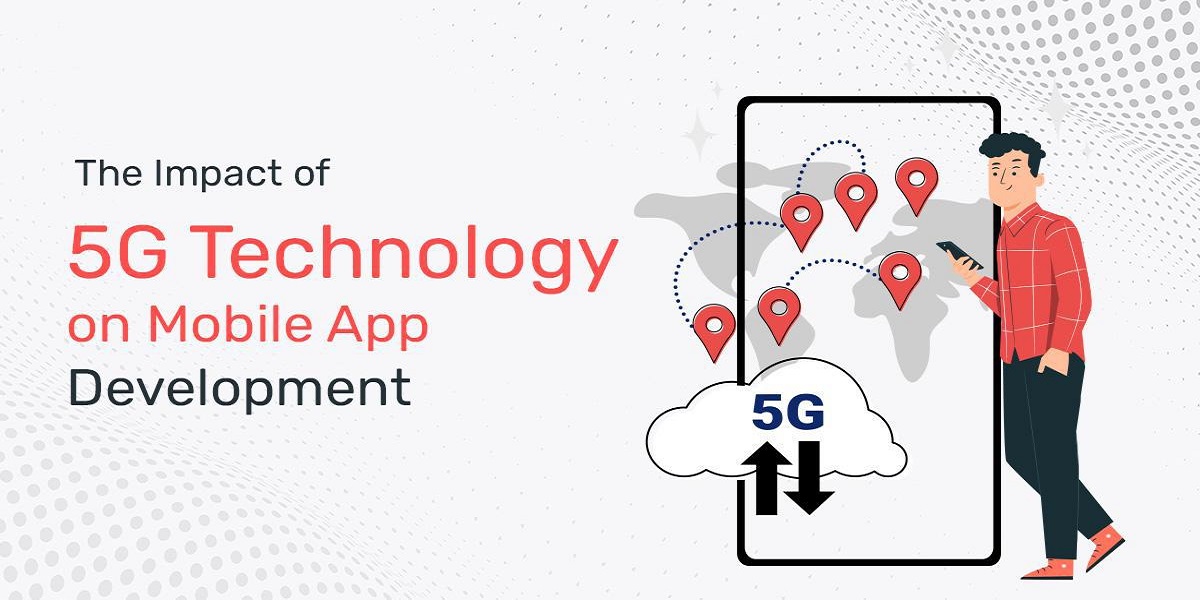
With its fair share of haters and supporters, 5G is the latest buzz in the market that has all the eyeballs right now. If you have been following the headlines, you may already know that the expected connectivity speed with a 5G network will be anywhere between 5-10 GB per second. Perform a simple calculation, and you'll know that this is 10x faster than our current 4G networks. Let that sink in for a while!
With such incredible speeds, data-sharing will become a hassle-free task. You'll be able to share files across the Internet within a few seconds and even download content within the blink of an eye. Experts believe that 5G connectivity will transform several industries - and mobile app development is one of them. With fast connectivity speeds at their disposal, Indian app developers will have the power to develop mobile apps more quickly and accelerate time-to-market for their clients.
However, fast deployment isn’t the only transformation we’ll witness in the app development market. In this guide, we are going to discuss how 5G adaptation will transform the app development industry and how it’ll accelerate the usage of mobile apps across the globe.
What is 5G Connectivity?
5G is the 5th-generation of wireless technology that promises high-speed connectivities. Contrary to what you may have heard, 5G isn't an upgrade of the current 4G network. Instead, it's an entirely new network architecture that delivers high performance and improves real-time data sharing between different devices.
So, apart from helping you download movies within the blink of an eye, 5G will also strengthen several network-based infrastructures such as autonomous vehicles. With 5G connections, self-driving cars will make better autonomous decisions and avoid unexpected accidents.
In addition to this, the AI algorithms controlling the vehicle will update data centers with real-time information so that other automatic cars on the road make better decisions while choosing between different routes. This is the reason why network operators have already invested $2444 billion for the global rollout of 5G connectivity.
How 5G Connectivity Will Transform Mobile App Development?
So, what would be the impact of 5G’s global implementation on the mobile app development market? Well, the answer is pretty simple! 5G connectivity will accelerate the integration of technologies that are still underway in the 4G-powered world. This will allow developers to build visually engaging mobile apps that’ll deliver a user-friendly browsing experience to the end-users.
Some of the other changes that we’ll witness in the app development market post-5G-rollout include:
1. Powerful Video Streaming Apps
There’s no denying the fact that video streaming apps are already ruling the app development market. In fact, statistics suggest that the video streaming market is expected to generate a revenue of $102.0971 billion by the end of 2023.
While video streaming is already a booming app market, the worldwide rollout of 5G-connectivity will allow developers to build more functional streaming platforms. With 5G connections, users will also have the ability to stream UltraHD, 360-degree, and VR videos anytime and anywhere they want.
2. AR-Integration
Augmented Reality is one of the most anticipated technologies that has gradually started to step into the app development market. From the infamous Pokemon Go to IKEA Place 4+, the app store is stacked with different AR-based mobile apps that offer advanced functionality.
However, if you have used any of these apps, you may already know their user experience is not up to the mark, especially if you are not connected to a stable Internet connection. But, with 5G connectivity, AR-based mobile apps will become a norm in the next 5-10 years. Due to its low latency and exceptional speed, AR-powered apps won’t experience unexpected lags and deliver an uninterrupted browsing experience to the users.
3. High Accuracy for GPS-Enabled Apps
GPS integration has become a norm in today’s app development market. From food-delivery apps to dating platforms, a wide range of mobile apps use GPS signals to detect user’s real-time location. However, the current network carriers often fail to detect the accurate location, mainly due to high latency and low speed.
Fortunately, that’s not the case with 5G connectivity. Since 5G connections use high radio frequencies, they deliver fast speed - thereby, calculating the current GPS coordinates of the device more accurately. Since 5G will improve the precision of such solutions, we’ll most likely witness an increase in the number of GPS-enabled apps on the app store.
4. Cloud-Based Apps
Due to the limitations of the current network architecture, mobile apps store data on the device’s local storage and mainly rely on its hardware configuration. This is the primary reason why mobile devices with poor hardware components fail to support high-end apps.
With 5G implementation, however, developers can reduce the hardware reliance on mobile apps. Since 5G technology has fast speed, developers can integrate cloud APIs into their apps and configure them to store app data on the cloud only. This will reduce the hardware reliance and the apps will be able to deliver top-notch performance.
Conclusion
Even though the COVID-19 pandemic has put a halt on the deployment of 5G architecture, it’ll only be a few years before we all have access to 5G supported devices. Apart from giving us instant access to information, 5G technology will also boost the performance of mobile apps. Indian app developers will have the ability to deliver user-centric solutions and garner the customers’ attention more easily.
